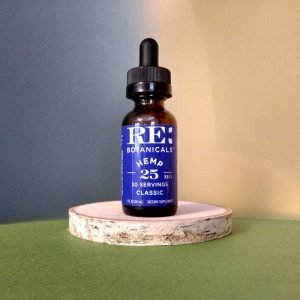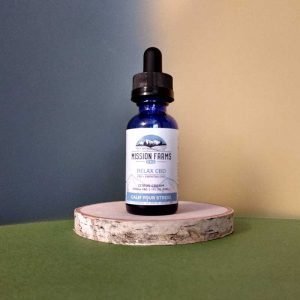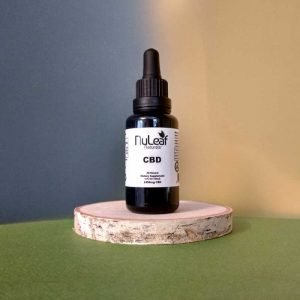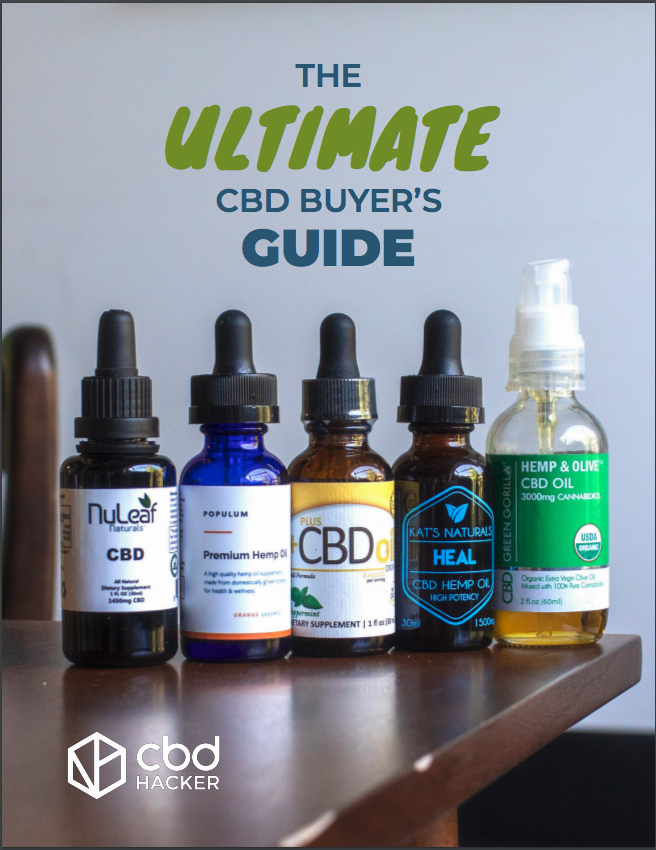As CBD becomes more well-known for its therapeutic and medicinal benefits, it’s emerging as an additional option for already heavily-prescribed disorders. In fact, there’s been considerable interest in CBD oil from people with ADHD, or attention deficit hyperactivity disorder.
Read on to learn what the current research says about using CBD products to treat ADHD.
About CBD for ADHD
Claim
Cannabidiol is effective in treating ADHD symptoms.
Research Shows
Due to the lack of rigorous studies and research, it is unclear exactly how effective CBD is in ADHD treatments, compared to THC and other cannabis compounds.
Just the Facts
Anecdotal evidence and preclinical research suggest that CBD may be helpful for people with ADHD. But the lack of clinical research means that the jury is still out on this one.
About ADHD
A variety of symptoms define attention deficit hyperactivity disorder. These include but are not limited to: difficulty being attentive, excessive moving and fidgeting, and impulsivity.
Although ADHD affects approximately 3.4% of adults and 6% of children around the world, its causes are largely unknown. Common treatment options include behavioral therapy and ADHD medications, like methylphenidate and amphetamine stimulants. One of the best known is the drug Ritalin, which can help severely curb ADHD symptoms and has been in use since the 1960s.
However, Ritalin and similar drugs may also induce nausea and insomnia. For patients who want to avoid these medications, or for those who are looking for something to mitigate those side effects, many are turning to cannabis treatments such as CBD.
About CBD Oil
Cannabidiol, or CBD, is a compound that comes from the cannabis plant. It’s one of a group of substances known as cannabinoids, which closely resemble chemicals that the body produces naturally.
That similarity allows cannabinoids to interact with receptors found in the brain, organs, immune cells, and a variety of other places in the body.
This network of receptors and chemicals is known as the endocannabinoid system, and it plays a part in a variety of processes, from regulating mood to determining the body’s response to injury.
This huge spectrum of activity is the reason that researchers are increasingly studying CBD and other cannabis products for a variety of health conditions. These include anxiety disorders, substance use disorders, chronic pain, and many more.
CBD can come from “hemp” plants, which contain such low amounts of THC that they are not intoxicating. It is also found in medical marijuana plants, which produce more THC — in the US, any plant with more than 0.3 percent THC by weight is considered “marijuana.”
How CBD Could Help with ADHD
Dr. David Berger, a pediatrician in Florida, has recommended CBD to patients exhibiting ADHD symptoms. He says that he has “clearly seen patients who have improved their ADD symptoms.” And even if those positive results come from a placebo effect when taking CBD, Dr. Berger says he feels CBD “is a safer placebo than Ritalin.”
CBD treatment is also an attractive option because patients can stop using it at any time without complications.
“The stimulant medications and CBD have similar pharmacodynamic properties, in that pretty much the first dose out you should see if will work,” Dr. Berger says.
“And similar to Ritalin, you can not use it on weekends, you could take holidays off, you can adjust the dose on the fly. If you’re seeing a negative reaction you could stop it immediately. Knowing that I can start and stop it if things aren’t going well, which is very uncommon, then what are the downsides?”
Finding the Dosage “Sweet Spot”
According to Neely, who also uses CBD to treat her own ADHD, the effect of CBD in a hyperactive person is that it slows things down so that they can focus better. Many of her customers use CBD to replace pharmaceuticals like Ritalin.
“I’ve never taken prescription drugs for ADHD personally,” Neely says. “I know clients have, and they choose to get off of them because the CBD helps with that. I would say it almost has the same benefits as Adderall and Ritalin, but we don’t have all the scientific backup. That’s what we’re working on now.”
Neely recognizes the difficulties caused by the current lack of scientific research on CBD. To learn more about CBD herself and help her customers better understand it, she offers to help them monitor their progress and figure out the doses that work best for them.
“We ask them to let us know how it’s going and discuss things with us because they’re kind of our guinea pigs. We don’t have the scientific backing in this industry.”
Research Highlights
2017: Cannabinoids for ADHD
This 2017 randomized, controlled study looks at the use of Sativex, a pharmaceutical made up of equal parts tetrahydrocannabinol, or THC, and CBD, in treating participants with ADHD.
The results were not overwhelmingly positive or negative, but researchers found that a portion of the participants experienced reduced hyperactivity and improved attention.
One limitation of this study is that it only used adult participants. ADHD is about twice as common in children than it is in adults.
This means that there is lots of room for research on CBD for the more vulnerable ADHD population. And CBD’s non-intoxicating properties may be of particular interest to parents of young children with ADHD. Unsurprisingly, many parents want to avoid giving their children THC.
However, the study is important in providing evidence that cannabis can be effective in treating ADHD symptoms. With the recent FDA approval of the CBD-based pharmaceutical Epidiolex, hopefully we will see more studies looking at CBD and ADHD.
2016: Self-reported Cannabis Use for ADHD
This 2016 meta analysis is helpful in organizing and presenting the large amount of self-reported data on CBD use.
Researchers identified more than 250 threads online where people were discussing using cannabis (predominantly smoking marijuana) to treat their ADHD. After examining a randomized sample (~50 of the threads), they found that 25% of the threads contained reports of cannabis helping people with their ADHD.
Anecdotal support for CBD and cannabis can be easy to dismiss when significant scientific evidence isn’t available. But that doesn’t mean it’s not valuable. This study is an important reminder that while casual reports should still be taken at face value, many people still rely on that information. There is more of a need than ever for more research.
2012: CBD for Social Interaction and Hyperactivity
Perhaps the most rigorous evidence that CBD can treat ADHD symptoms comes from a 2012 study on rats.
In the study, researchers gave rats doses of the drug dizocilpine to induce ADHD-like behaviors. But before being given dizocilpine, one of the rat groups was treated with doses of CBD.
After receiving dizocilpine, that CBD-treated group exhibited social behaviors and activity levels that were significantly more normal than the rats who were not given CBD. In fact, the rats given CBD actually demonstrated improved social cognitive function.
According to the researchers: “We have evidence to suggest that pretreatment with CBD not only inhibits the effects of MK-801 [dizocilpine] but increases investigative behavior beyond control values at the social holes.” That suggests CBD could be used outside of ADHD treatments to improve focus and attention among general populations.
As an animal study, this trial is obviously limited. However, it’s important in establishing support for the claim that CBD can be used in ADHD treatment.
Concerns About Using CBD in ADHD Treatment
There is still a lack of research specifically on CBD in treating ADHD. Therefore, it is difficult to say what, if any, negative effects CBD may have on people with ADHD in particular. Further research is needed to determine whether there are any long-term effects of using CBD products for ADHD.
However, the relative lack of negative anecdotal reports on cannabis in ADHD treatment suggest there are minimal risks. And this is supported by the findings of the studies discussed above.
Even reputable medical groups such as the World Health Organization report CBD to be safe and tolerable across many populations. In clinical trials exploring the use of CBD for different medical conditions, few adverse effects have been reported. When side effects have been recorded, they usually include like drowsiness, decreased appetite, and diarrhea. Patients in some trials have also experienced changes in their liver enzymes.
If you are thinking of trying CBD for ADHD, talk to your doctor first. It’s possible that CBD could interact with other medications you may be taking.
The Takeaway
There is no scientific evidence that the use of CBD in particular is an effective treatment for ADHD. But in recent years it has become a popular choice for people with ADHD. Many CBD users with ADHD say that it helps to reduce their symptoms.
The available evidence on cannabis and ADHD suggests that CBD is worth researching further. This will help clinicians to better understand how it can help people with ADHD.
Editor's Choice: CBD Oil Drops
Ready to try adding CBD oil to your life? You’ll find a few of our team’s favorite products below.
And if you’re looking for more great suggestions, check out our ranking of the Best CBD Oil Drops for 2019.
RE Botanicals, Hemp 25 Classic Tincture
Founded by a veteran of the hemp industry and an advocate for regenerative agricultural practices, RE Botanicals is one of the first CBD brands to qualify for organic certification from the USDA — and they beat many of their competitors on pricing!
Save 10% with code: cbdhacker.
Mission Farms, Relax CBD Oil
Mission Farms formulates their CBD products with essential oils and terpenes to address different concerns. And with formulas designed to aid in relaxation, sleep, and pain relief, they have something for just about everyone!
Save 20% with code: cbdhacker.
NuLeaf Naturals, Full Spectrum CBD Oil
NuLeaf Naturals offers Colorado-grown, full spectrum CBD oil that offer among the most trace cannabinoids per drop of any product we’ve tested.
Save 20% with code: cbdhacker.










